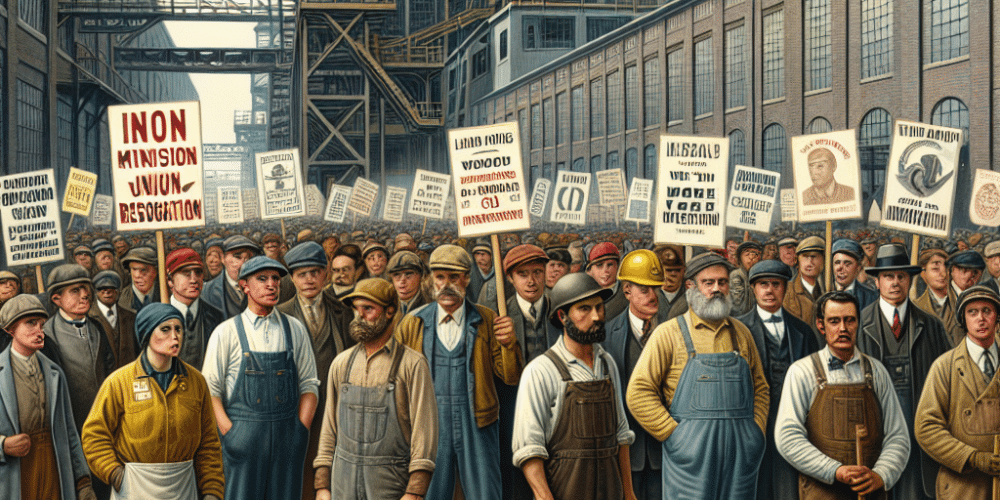In Indiana, Caesar’s Horseshoe Indianapolis witnessed a notable strike as around 200 workers walked off the job. These employees, primarily dealers and dual-rate workers, are demanding the casino recognize Teamsters Local 135 as their official representative. The strike began on a Friday and was fueled by delays in an election that was supposed to confirm the Teamsters as the union of choice.
The planned election, initially scheduled for October 17, hit a snag due to an ongoing government shutdown, leading to an indefinite postponement. In response, the prospective Teamsters suggested conducting the vote with a neutral third party to avoid further delays. However, Horseshoe management rejected this proposal, prompting the workers to strike for union recognition. This move underscores the growing frustration among the employees, who feel neglected by management’s reluctance to engage in fair labor practices.
Dustin Roach, the president of Teamsters Local 135, expressed the sentiment of many workers: Horseshoe dealers and dual-rate workers deserve solid representation. He emphasized that the casino could resolve the strike instantly by acknowledging the union. His words reflected the collective determination of the workforce, “We will not let the casino’s management stand in their way. Recognition of the union is all they have fought so hard to achieve.”
Despite the strike, the economic backdrop of Indiana’s casino industry tells a story of growth. In August, casinos in the state reported a total of $204.2 million in adjusted gross revenue. This marked a 2 percent increase compared to the previous year and a significant 9 percent rise from July. Such figures highlight a thriving industry, where six out of the state’s 13 casinos recorded revenue growth compared to the same period last year.
Leading the charge was Hard Rock Casino Northern Indiana, despite a yearly dip of 6.1 percent, generating $34.3 million. Horseshoe Indianapolis, the focal point of the current labor dispute, not only reported an 11 percent increase year-on-year but also contributed substantially with $24.6 million. Close on its heels was Horseshoe Hammond, which saw a remarkable 30 percent jump in revenue, reaching $24.5 million.
The positive trajectory of Indiana’s casino revenues adds a layer of complexity to the labor dispute at Horseshoe Indianapolis. The casino’s financial prosperity might bolster the workers’ argument for stronger representation. However, this context also presents a challenge: management may feel emboldened to resist unionization efforts, banking on the casino’s current profitability to weather the labor unrest.
From a broader perspective, the dispute at Horseshoe Indianapolis is emblematic of a nationwide trend where workers across various industries are increasingly advocating for union representation. These efforts often face stiff resistance from management, especially in sectors experiencing financial success. The standoff at Horseshoe Indianapolis could serve as a bellwether for similar labor movements within the gaming industry and beyond.
Critics of the strike argue that the immediate impact on the casino’s operations might be minimal, given the current economic robustness. They suggest that the management might adopt a wait-and-see approach, anticipating that the strike’s momentum could wane over time without immediate concessions. However, the persistent call for union recognition at Horseshoe Indianapolis might inspire similar actions elsewhere, especially in an industry where unionized labor is often seen as a path to better wages and working conditions.
The situation remains fluid, with the potential for resolution resting heavily on the willingness of Horseshoe Indianapolis’s management to engage with the workers’ demands. Both sides stand at a crossroads, with the possibility of setting a precedent not only for the casino but for the wider gaming industry. As the strike continues, all eyes are on whether the management will acknowledge the workers’ call for union representation, potentially paving the way for a new era of labor relations in Indiana’s lucrative casino market.

David Garato is a luminary in gaming journalism, renowned for peeling back the curtain on the gaming world with his witty and insightful commentary. A decade into weaving stories from the pixelated edges of indie games to the expansive universes of AAA titles, David’s work is a thrilling blend of analysis and adventure. When not writing, he’s live-streaming, sharing his gaming exploits with an engaged and growing audience. David doesn’t just write about games; he lives them, making him a trusted guide in the gaming community.
















